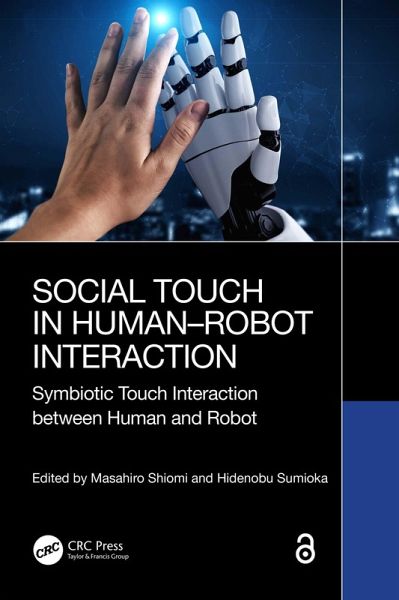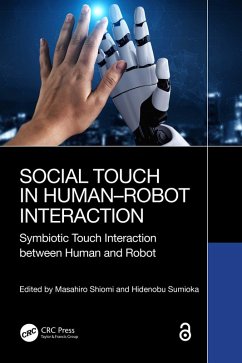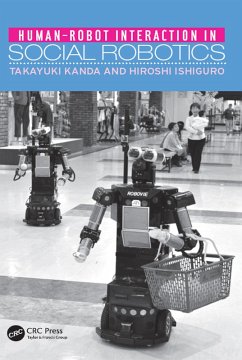
Social Touch in Human-Robot Interaction (eBook, ePUB)
Symbiotic touch interaction between human and robot
Redaktion: Shiomi, Masahiro; Sumioka, Hidenobu
Versandkostenfrei!
Sofort per Download lieferbar
40,95 €
inkl. MwSt.
Weitere Ausgaben:

PAYBACK Punkte
20 °P sammeln!
In this book for researchers and students, editors Shiomi and Sumioka bring together contributions from researchers working on the CREST project at ATR Deep Interaction Laboratories, a world leader in social robotics, to comprehensively describe robot touch systems from hardware to applications.Appropriate touch from robots to humans is essential for social robots, but achieving this requires various solutions at every stage of the touch process. Through this book, readers will gain an understanding of the needs, essential systems and communication cues, behaviour designs, and real-world issue...
In this book for researchers and students, editors Shiomi and Sumioka bring together contributions from researchers working on the CREST project at ATR Deep Interaction Laboratories, a world leader in social robotics, to comprehensively describe robot touch systems from hardware to applications.
Appropriate touch from robots to humans is essential for social robots, but achieving this requires various solutions at every stage of the touch process. Through this book, readers will gain an understanding of the needs, essential systems and communication cues, behaviour designs, and real-world issues for social touch applications. This book compiles and updates technical and empirical research that was previously scattered throughout the literature into a single volume. Through individually authored chapters addressing various elements of ATR's CREST project, this book tackles key areas where understanding is needed to realize acceptable touch interaction, including pre-touch interaction, interaction design for touching and being touched, behaviour changes caused by touch interaction, and applications of social touch interaction. It introduces a touch sensor and robots developed by the authors, including several touch-related behaviours and design policies. This approach will enable readers to easily apply this knowledge to their own social robotics programs. This book is invaluable for anyone who wishes to understand and develop social robots that physically interact with people.
It is most beneficial for researchers and upper undergraduate and graduate students in the fields of human-robot/agent/computer interaction and social touch interaction and those in the broader fields of engineering, computer science, and cognitive science.
Appropriate touch from robots to humans is essential for social robots, but achieving this requires various solutions at every stage of the touch process. Through this book, readers will gain an understanding of the needs, essential systems and communication cues, behaviour designs, and real-world issues for social touch applications. This book compiles and updates technical and empirical research that was previously scattered throughout the literature into a single volume. Through individually authored chapters addressing various elements of ATR's CREST project, this book tackles key areas where understanding is needed to realize acceptable touch interaction, including pre-touch interaction, interaction design for touching and being touched, behaviour changes caused by touch interaction, and applications of social touch interaction. It introduces a touch sensor and robots developed by the authors, including several touch-related behaviours and design policies. This approach will enable readers to easily apply this knowledge to their own social robotics programs. This book is invaluable for anyone who wishes to understand and develop social robots that physically interact with people.
It is most beneficial for researchers and upper undergraduate and graduate students in the fields of human-robot/agent/computer interaction and social touch interaction and those in the broader fields of engineering, computer science, and cognitive science.
Dieser Download kann aus rechtlichen Gründen nur mit Rechnungsadresse in A, B, BG, CY, CZ, D, DK, EW, E, FIN, F, GR, HR, H, IRL, I, LT, L, LR, M, NL, PL, P, R, S, SLO, SK ausgeliefert werden.













